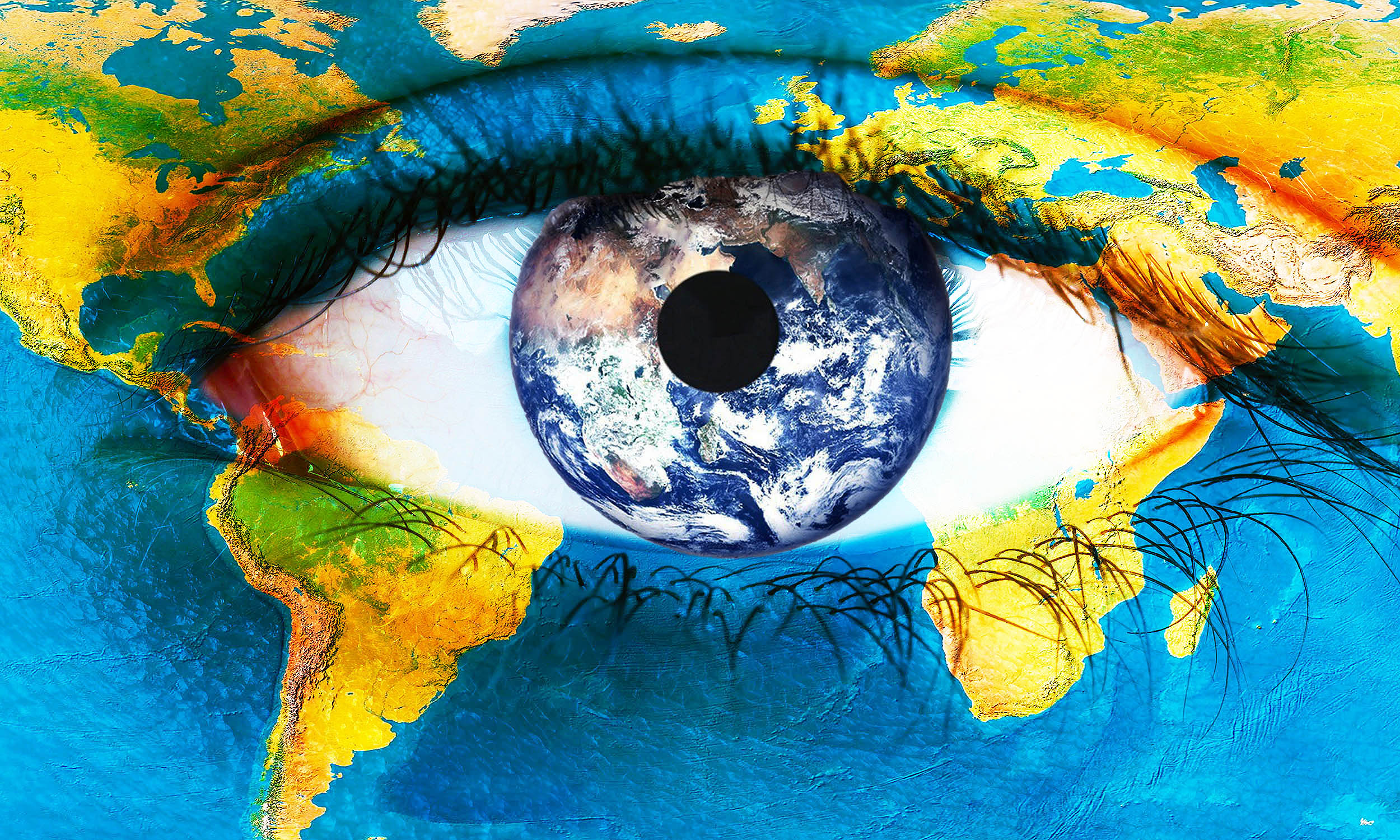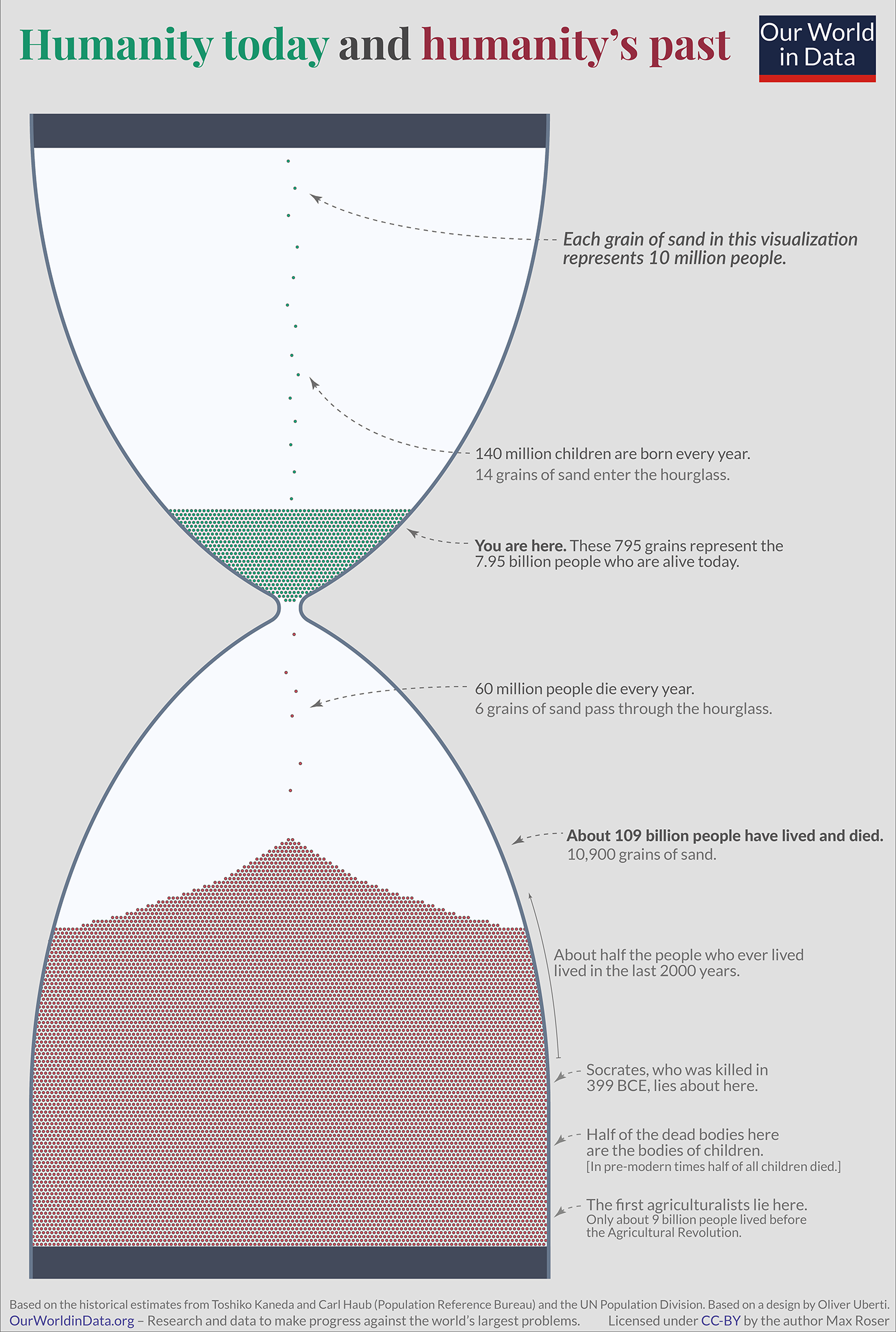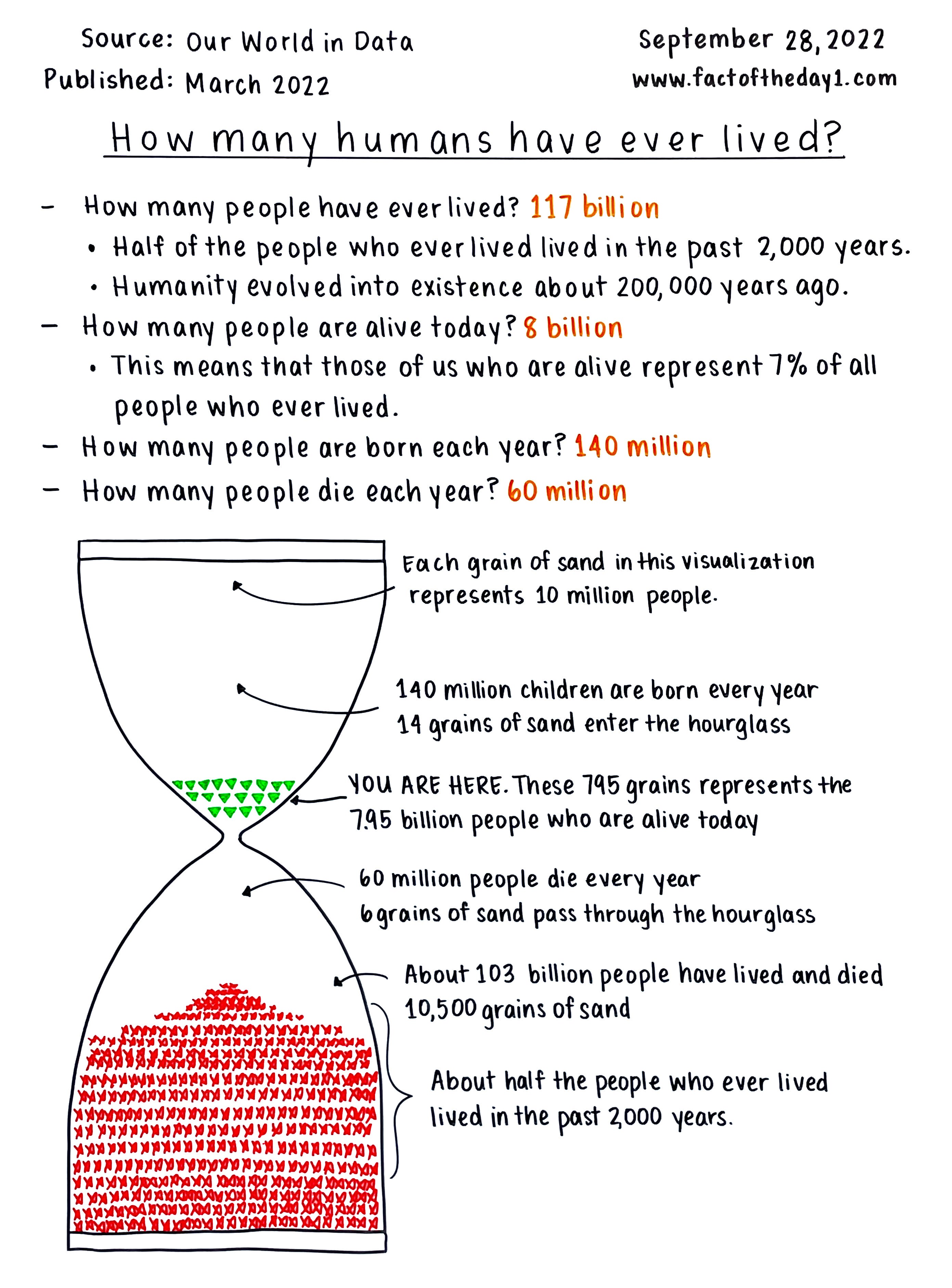The question of how many humans have died throughout history is one that, arguably, touches a deep chord within many of us. It makes us think about the sheer scale of human existence and the countless lives that have come and gone. This thought, so very profound, often leads to a desire for a precise number, a definite figure to grasp the immense reality of it all.
Yet, the very word "many" tells us something important about this question. As a matter of fact, "many" points to a large but indefinite number. It suggests a quantity that is considerable, quite significant, but not easily counted. We use "many" to describe a multitude, an amount that is vast and perhaps beyond simple tallying, and that's exactly what we're facing here.
This article will explore why getting an exact count of how many humans have died is, in some respects, an impossible task. We will look at what "many" truly means in this context and consider the reasons why such a number remains, and will likely always remain, undefined. You know, it's a journey into the nature of historical data itself.
Table of Contents
- The Meaning of "Many" Lives
- The Challenge of Counting Past Lives
- Why an Exact Number Remains Elusive
- Looking at the Human Journey
- Frequently Asked Questions About Human Mortality
- A Final Thought on Life's Value
The Meaning of "Many" Lives
When we ask "how many humans have died," we are asking about a quantity that is, by its very nature, incredibly large and, quite frankly, beyond simple arithmetic. The word "many" itself signals this. It refers to a large number, a substantial amount, or a significant quantity of people or things. It indicates a plural or multiple existence of something, suggesting that there is a considerable quantity.
My text tells us that "many" is a popular and common word for this idea of a large but indefinite number. It's often used in questions, like the one we are considering, or in negative sentences. Think about it: "Not many films are made in Finland," or "I don't think many people would argue with that." These uses show that "many" suggests a quantity that is not easily pinned down, yet it's certainly more than a few.
Synonyms for "many" include "innumerable," "manifold," "numerous," "multiple," "several," "countless," and "multitudinous." These words, in their own way, reinforce the idea of a number so vast that it resists precise calculation. So, when we ponder how many humans have died, we are really contemplating an "innumerable" collection of lives, a "countless" array of individual stories that have unfolded across time. It's a bit like trying to count grains of sand on a very, very long beach.
The concept of "many" here implies a scale that goes beyond what our minds can easily visualize as a single digit or even a series of digits. It's a recognition of the vastness of human experience, stretching back through countless generations. This understanding of "many" sets the stage for why a definitive number is simply not something we can ever truly arrive at, you know, for sure.
It's about the feeling of immense quantity, rather than a hard figure. The term "many" captures the sense of a great deal, an abundance of individual existences that have, over time, ended. This is the core of our discussion, focusing on the sheer volume of lives rather than a specific numerical tally. It's almost like recognizing a huge crowd without counting every single person in it, just knowing there are "many."
The Challenge of Counting Past Lives
Trying to count every single human who has ever lived and died presents some truly enormous challenges. For a start, we have to go back to the very beginnings of humanity, a time when no records existed. Think about the earliest groups of people, living thousands and thousands of years ago. There were no census takers, no birth certificates, and certainly no death registries. So, basically, how would anyone have kept track?
Even as societies began to form, record-keeping was, in some respects, very rudimentary. Ancient civilizations might have kept some population figures for taxation or military purposes, but these were often incomplete and did not cover everyone. They certainly didn't track individual deaths in a way that would allow for a grand total across entire populations or across vast stretches of time. It's like trying to piece together a huge puzzle with most of the pieces missing.
Consider, for example, the periods before widespread literacy or before the invention of printing presses. Information traveled slowly, if at all, and was often lost to time. Wars, natural disasters, and the simple decay of materials meant that what few records did exist often did not survive. This makes it incredibly difficult to get even a rough idea of population sizes, let alone death rates, for much of human history.
Then there's the question of what counts as a "human." Does it include early hominids, or only anatomically modern humans? Even if we settle on a definition, tracking populations across vast, unrecorded eras is incredibly hard. Archeological finds and genetic studies can give us clues about population movements and sizes, but these are broad estimates, not precise counts of individuals.
The further back in time we go, the more speculative any figures become. We are talking about millions of years of human and pre-human existence, with populations fluctuating wildly due to climate, resources, and disease. So, in other words, the idea of a continuous, unbroken record simply does not exist. This lack of consistent, reliable data means that any attempt to put a single number on how many humans have died will always be, at best, a very rough guess, and at worst, purely speculative.
So, the challenge isn't just about adding up numbers; it's about the very absence of those numbers for the majority of human existence. It's a bit like trying to count the stars in the night sky without a telescope, you know, just with your bare eyes. The sheer scale and the lack of tools make it impossible.
Why an Exact Number Remains Elusive
Even in more recent history, getting an exact count of how many humans have died is still incredibly hard. Think about major historical events: widespread famines, devastating plagues like the Black Death, or global conflicts. While historians can provide estimates for the number of people who perished in these events, these are, arguably, still estimates. They are based on available records, which can be incomplete, or on demographic models, which are educated guesses.
Consider, for instance, the sheer scale of the 1918 flu pandemic. While millions died, the exact global tally is still debated. Many deaths went unrecorded, especially in remote areas or among vulnerable populations. This pattern repeats throughout history: natural disasters, local conflicts, and everyday mortality often occurred without any formal record-keeping. Basically, a lot of information just vanished.
Furthermore, population figures themselves have always been subject to change and estimation. Birth rates and death rates varied wildly across different societies and time periods. Without accurate historical population data, calculating cumulative deaths becomes even more challenging. It's like trying to figure out how many drops of water have fallen into a lake without knowing how much rain fell or how much water evaporated.
The definition of "many" truly comes into play here. It acknowledges that the number is large, perhaps even "innumerable" or "countless," but it doesn't promise a precise figure. The very nature of historical demography means we are often dealing with trends and broad brushstrokes rather than individual data points for every person who ever lived and died. This makes arriving at a single, universally accepted number for how many humans have died virtually impossible.
So, you know, while some researchers have tried to estimate the total number of people who have ever lived, these figures are built on assumptions about ancient population sizes and growth rates. These are not counts of individuals. They are, at best, informed projections. The concept of "many" beautifully captures this reality: a vast, significant quantity that we can feel and understand, but one that defies precise measurement. It's a rather humbling thought, in some respects.
This challenge is not a failure of research, but a reflection of the conditions of history itself. The world was not set up to record every birth and death from the dawn of time, and so, the data simply isn't there. It's like trying to find a specific leaf in a very, very old forest after the leaves have all decomposed.
Looking at the Human Journey
Instead of focusing on a precise, unobtainable number for how many humans have died, perhaps it's more meaningful to reflect on the collective human journey. Every life, whether long or short, ancient or recent, has contributed to the story of humanity. Each person experienced joys, sorrows, challenges, and moments of connection. This perspective shifts our focus from a mere count to the richness of existence itself.
The vast number of people who have lived and died reminds us of the continuous flow of life across generations. It highlights the resilience of humanity, how we have adapted, survived, and even thrived through countless hardships. This ongoing cycle of life and death is, arguably, a fundamental aspect of what it means to be human. It's a powerful reminder that we are all part of something much larger than ourselves.
Considering the "many" who have passed before us can also foster a deeper appreciation for the present moment. It encourages us to think about the legacy we leave and the impact we have on those around us. Every day, new lives begin, and others conclude, adding to that ever-growing, indefinite sum. This process is, naturally, a constant, and it shapes our world in ways we might not always consider.
So, while we may never know the exact figure for how many humans have died, the very question leads us to contemplate the profound scale of human history. It's a powerful way to connect with the past and recognize our place within the grand narrative of life on Earth. You know, it really puts things into perspective.
This contemplation is, in a way, more valuable than a number. It invites us to think about the shared human experience, the common threads that bind all people, regardless of when or where they lived. It's a reflection on the collective story of our species, which is, in fact, still being written.
Frequently Asked Questions About Human Mortality
Has humanity always existed in large numbers?
No, not always. For much of early human history, populations were actually quite small, very scattered, and subject to significant fluctuations. Early human groups lived as hunter-gatherers, and their numbers were limited by available resources and environmental conditions. It was only with the development of agriculture, and later, industrialization, that human populations began to grow significantly. So, in some respects, the "many" we talk about today are a relatively recent phenomenon in terms of density.
What caused the most deaths in history?
Historically, disease has been a primary cause of death, responsible for a vast number of human lives ending. Plagues and epidemics, like the Black Death or smallpox, swept across continents, claiming millions of lives. Famine, often linked to climate changes or conflict, also caused widespread mortality. While wars and violence have taken a tragic toll, the sheer scale of deaths from disease and hunger has, arguably, been far greater throughout human history. It's a rather sobering thought, really.
Is it possible to estimate the total number of people who have ever lived?
Researchers have made attempts to estimate the total number of people who have ever lived, but these are, quite simply, estimations. They rely on assumptions about population sizes and growth rates in ancient and prehistoric times, for which there is very little concrete data. These figures are, at best, educated guesses, and they vary widely depending on the models used. So, while we can talk about "many" people having lived, an exact, verifiable count is not available. It's a bit like trying to count raindrops in a very, very old storm.
A Final Thought on Life's Value
Considering how many humans have died, a number that is truly vast and indefinite, helps us appreciate the fragility and preciousness of each individual life. It reminds us that every moment we have is, in fact, a gift. This perspective can encourage us to live thoughtfully, to connect deeply with others, and to make the most of our time here. You can learn more about human history on our site, and we invite you to connect with us to share your own thoughts on these big questions. You know, it's a topic that really makes you think about things.
For more general historical context, you might find information at an external resource like World History Encyclopedia. This helps provide a broader picture of human existence over time.



Detail Author:
- Name : Lilian Rempel
- Username : yost.bethany
- Email : fadel.gardner@gmail.com
- Birthdate : 1977-01-18
- Address : 596 Carissa Estates Suite 640 Port Terrymouth, MN 80104-8576
- Phone : 531-965-7848
- Company : Goyette-O'Connell
- Job : Political Science Teacher
- Bio : Exercitationem accusamus consectetur omnis velit nesciunt non. Eum eligendi minus perspiciatis cupiditate ut nemo. Est enim alias cupiditate nostrum molestias sed.
Socials
facebook:
- url : https://facebook.com/carroll2002
- username : carroll2002
- bio : Ab cum accusamus eius ad praesentium praesentium.
- followers : 6973
- following : 1728
instagram:
- url : https://instagram.com/roscoe_real
- username : roscoe_real
- bio : Sint perspiciatis illum dolorem unde minima officia eveniet praesentium. Vel quo ducimus sequi.
- followers : 3094
- following : 2615

